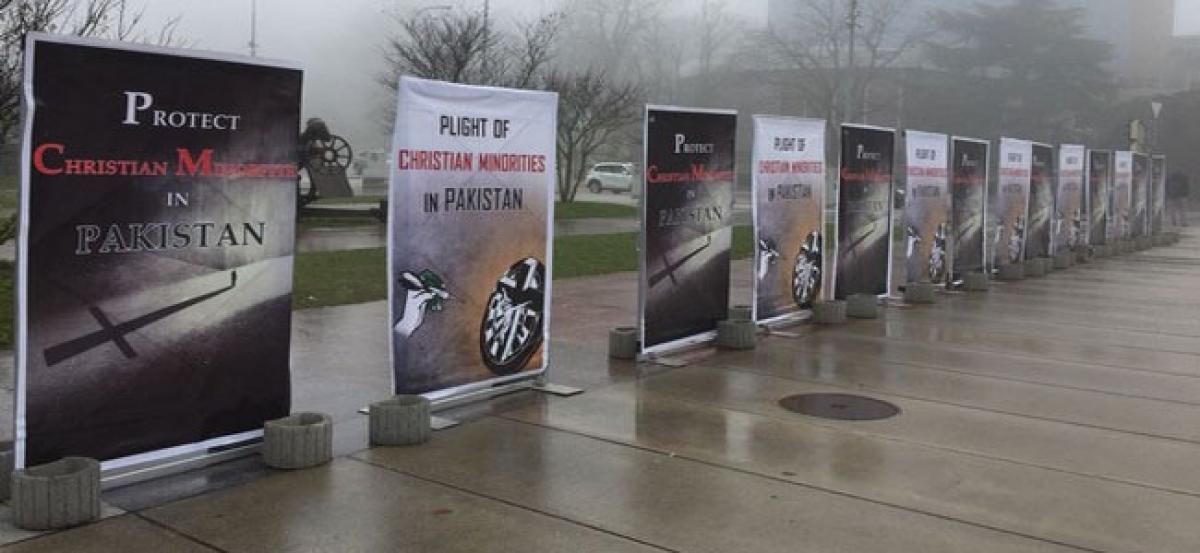Live
- 25% rise in internship opportunities observed in 2024: Survey
- Scholarships For Students
- Student Survives a Near-Fatal Accident at Pallavi Model School
- Prisoner in Sangareddy Central Jail Suffers Heart Attack
- Targeting gut cells may open new way to reduce depression & anxiety
- ‘Daaku Maharaaj’ to kickstart musical promotions
- ‘Game Changer’ team teases with a new promo
- Nara Lokesh emphasises overhaul of govt. schools and mid-day meal program
- Amid turmoil, air pollution peaks in Bangladesh as temperatures fall
- Google Trends unveils list of most searched ‘Indian Movies of 2024’
Just In

Short films depicting the persecution of the Christian minority in Pakistan was showcased during the 37th session of United Nations (UN) Human Rights Council in Geneva.
Geneva: Short films depicting the persecution of the Christian minority in Pakistan was showcased during the 37th session of United Nations (UN) Human Rights Council in Geneva.
A special screening of short films at Broken Chair, outside the UN office, highlighted the plight of the Christian minority in Pakistan and Pakistan occupied Kashmir (PoK) as they continue to remain victims of Islamic fundamentalism and state atrocities.
Christians stood only two-three percent of Pakistan's total population who are being persecuted under the infamous blasphemy law.
Pakistan's blasphemy laws date back to the military dictatorship of General Muhammad Zia ul Haq. In 1980, making a derogatory remark against any Islamic personage was defined as a crime under Pakistan's Penal Code Section 295, punishable by three years in prison.
In 1982, another clause added that prescribed life imprisonment for willful desecration of the Quran and, in 1986, a separate clause was added to punish blasphemy against Prophet Mohammed with death, or imprisonment for life.
Among many cases include Pakistan's most high profile blasphemy cases is that of Aasia Bibi, a Christian woman who was found guilty of committing blasphemy while working in the fields in 2009 and was sentenced to death. In 2014, her death sentence was upheld by the Lahore High Court and is still languishing in jail.
Islamic fundamentalists continue to pressurise the Pakistan government not to amend the blasphemy law. It is believed that the law in Pakistan has turned into a force corroding the Pakistani society, feeding extremism, implicating the justice system in radicalism and ultimately undermining rule of law.
Once blasphemy is alleged, mob violence or targeted killing become a possibility.
There are many cases in Pakistan wherein blasphemy suspects were either extrajudicially murdered or died in jail. Lawyers who dare to represent someone accused of blasphemy have also been killed.
The Christian community in Pakistan also faces forced conversion, detention and lynching by Muslims. The short films and posters also highlighted the bad state of Christian minority in Pakistan who are denied fundamental rights like government jobs, education and health benefits.

© 2024 Hyderabad Media House Limited/The Hans India. All rights reserved. Powered by hocalwire.com







